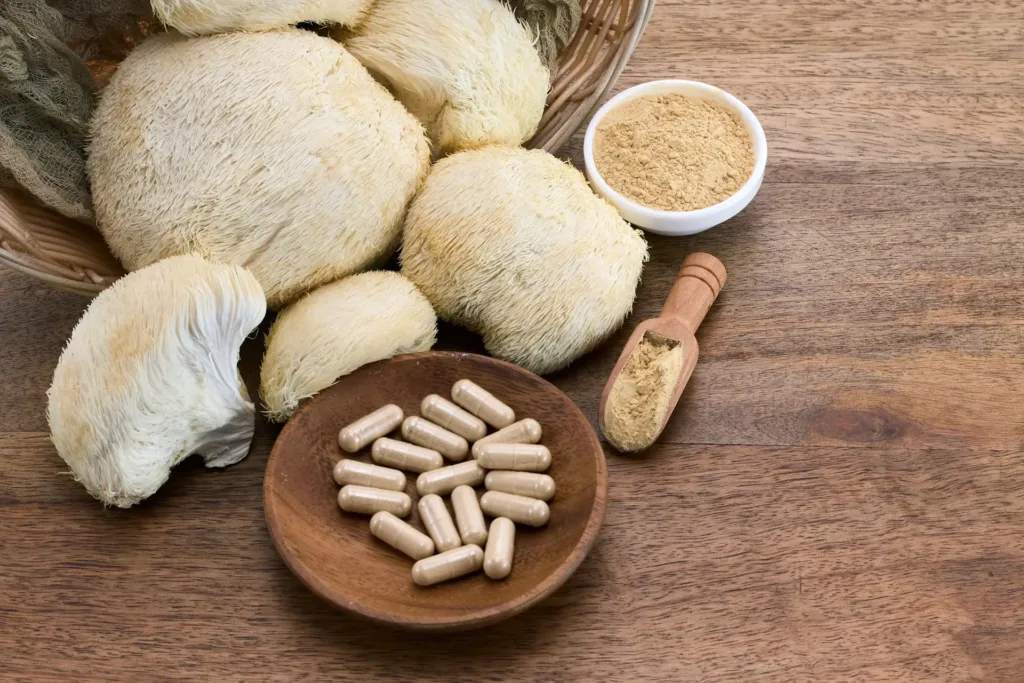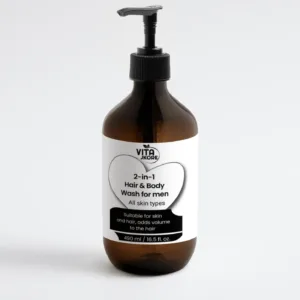
Transform Your Health: The Impressive Benefits of Mushrooms in Daily Intake”
Mushrooms, a culinary delight treasured for their delicate flavor and meaty texture, are not your typical garden vegetables but a unique form of fungi that have graced dining tables since ancient times. These unassuming food items, steeped in nutritional value and low in calories, cholesterol, and sodium, offer a bounty of vitamins and minerals vital to maintaining a healthy lifestyle. With thousands of mushroom species dotting the globe, only a select hundred or so, including types such as lion’s mane, chaga, and turkey tail, are recognized as edible, bringing variety and richness to the world’s cuisines.
The role of mushrooms extends far beyond their taste and nutritional composition. This article will reveal how integrating different types of edible mushrooms, like the royal sun and the well-regarded Agaricus bisporus, into one’s daily dietary regimen can revolutionize health. The discussion will branch into the impressive ways mushrooms, with their nutraceutical properties, have been leveraged in traditional medicine and modern nutritional supplements to bolster the immune system, manage weight, and potentially combat severe health conditions such as cancer and neurodegenerative diseases.
Nutritional Benefits of Mushroom Extracts
Delving into the nutritional profile of mushrooms, one finds a treasure trove of health-promoting components. Rich in essential nutrients yet low in undesirables, mushrooms’ culinary appeal is paralleled by their dietary value:
- Low Calorie and Cholesterol-Free: They provide substantial nutrients without adding excess calories or cholesterol to the diet, making them an excellent choice for those managing their weight or blood cholesterol levels.
- Vitamins and Minerals: Bursting with selenium, potassium, riboflavin, and niacin, mushrooms help to fortify the body’s defenses and promote overall health. Lion’s mane and turkey tail varieties, among other types of edible mushrooms, also contain vitamin D, which is vital for bone health and immune function.
- Proteins and Fiber: A source of quality protein, mushrooms offer a range of amino acids, with certain species boasting higher contents than others. Their fiber content, primarily indigestible polysaccharides like chitin, aids digestion and can contribute to satiety.
The bioactive compounds in mushrooms are responsible for their widespread applications in the promotion of human health:
- Antioxidants and Anticancer Properties: With an array of polysaccharides, mushrooms like chaga and royal sun exhibit anticancer solid properties. These compounds are known to help prevent and treat various health issues, from diabetes to neurodegenerative diseases.
- Immunomodulatory Effects: The glycoproteins and polyphenols present in these fungi enhance the immune system, offering protection against illness and aging.
One cannot overlook the complex biochemical composition of mushrooms, which includes: - Polysaccharides and ?-glucans: These components, particularly ?-glucans in their triple helix form, have shown significant potential in inhibiting tumor growth and are potent immunostimulators when in high molecular weight forms.
- Peptides: Mushrooms are impressive sources of peptides that engage in various activities, from lowering blood pressure to combating viruses.
- Fatty Acids: Despite their low-fat content, mushrooms like Cordyceps and Shiitake contain beneficial unsaturated fatty acids, contributing to their anticancer effects.
- Sterols and Vitamin D: Ergosterol, found in mushrooms, not only converts to vitamin D2 under UV radiation but also exhibits cytotoxicity toward specific cancer cells.
- Polyphenols: These compounds are critical in protecting cellular DNA from mutations, contributing to mushrooms’ antioxidant and cancer-preventing properties.
Mushrooms stand out as a dietary choice, not only for their umami and texture but also for their powerful health benefits. With each edible mushroom species, from the mighty lion’s mane to the strengthening royal sun, offering unique nutritional benefits, one can confidently incorporate them into a health-conscious diet.
Mushroom Extracts for Weight Management
In the quest for sustainable weight management, many individuals are turning to the diverse world of mushrooms. Extracts from mushroom types like Reishi, Cordyceps, and Lion’s Mane have been found to offer support through various mechanisms:
- Reishi mushrooms are known for supporting liver function, which is crucial in nutrient processing and body detoxification, essential for maintaining a healthy weight.
- Cordyceps extracts have been linked to enhanced cellular energy production, potentially improving exercise performance and boosting metabolism.
- Lion’s Mane mushrooms support cognitive function and stress reduction and have a relationship with metabolism, which can be essential for weight regulation.
The bioactive compounds present in these types of edible mushrooms, such as polysaccharides, triterpenes, and antioxidants, significantly influence metabolic processes. These include: - Polysaccharides: Acting as fibers, they can increase satiety and reduce appetite, critical factors for managing caloric intake.
- Triterpenes: Found in Reishi mushrooms, they have been suggested to improve liver function and metabolism.
- Antioxidants help combat oxidative stress, which is implicated in weight gain and metabolic disorders.
Furthermore, scientific studies underscore the potential of mushroom extracts in weight management: - In animal models, Chaga extract reduced body weight gain and improved glucose metabolism.
- Lion’s Mane supplementation was associated with decreased body weight and improved lipid profiles.
- Rats given Reishi extract showed less weight gain and less fat accumulation.
- Cordyceps, particularly rich in Myriocin, has shown promise in preventing obesity and enhancing liver health.
When integrating mushroom extracts into a weight control regimen:
- Choose extraction forms that are low or no-calorie, such as tinctures or powders.
- Consult with healthcare professionals to ensure compatibility with your health condition, especially regarding allergies, autoimmune conditions, or hypoglycemia.
- Verify that the products are sourced from pure fruiting bodies and have undergone rigorous third-party testing.
The incorporation of mushroom extracts extends to popular innovations like mushroom coffee. Touted for its health benefits, including potential weight loss, such drinks merge the stimulating effects of coffee with the nutritious prowess of mushrooms. However, these claims await further scientific substantiation.
Clinical studies involving participants with obesity or diabetes revealed a trend: those incorporating mushrooms into their diet saw improvements in body mass index (BMI), waist circumference, and satiety levels, all without compromising taste. With types of edible mushrooms like white button, Lion’s Mane, and Shiitake emerging as potential antidiabetic and anti-obesity agents, their integration into daily intake seems healthy and promising in weight management.
Integrating Mushroom Extracts into Your Diet
For those seeking the health benefits derived from medicinal mushrooms such as Reishi, Lion’s Mane, and Cordyceps, incorporating mushroom extracts into their diet is a natural progression. With types of edible mushrooms each offering a range of benefits from cognitive enhancement to immune support, there are several user-friendly ways to integrate these superfoods into daily routines. High-quality, organic varieties are often recommended, especially for beginners, to ensure a safe and controlled experience of the mushrooms’ potent properties.
Here are some practical suggestions on how to seamlessly introduce mushroom extracts into one’s diet:
- Morning Rituals:
- Mushroom Coffee: By swapping traditional coffee with a mushroom blend, one not only savors a unique flavor but also enjoys the health perks of mushrooms. A quick stir of mushroom powder into hot water can stimulate the day’s start.
- Smoothies: For a nutritious breakfast or snack, add a scoop of mushroom powder to your favorite blend of fruits, vegetables, and liquids for an extra health boost.
- Meals and Snacks:
- Cooking: Mushroom powders can be easily incorporated into soups, stews, or sauces to fortify your dishes without altering their original flavors drastically.
- Baking: The versatility of mushroom powders extends to baking, where they can be mixed into bread, muffins, or other baked goods.
- Protein Balls: Create a batch of no-bake protein balls, incorporating mushroom powder for an energizing and portable snack.
- Leisurely Sips:
- Tea: Steep mushroom powder or extracts in hot water to enjoy a soothing cup of tea, which can be a calming ritual to unwind during the day or before bedtime.
- Functional Beverages: Add mushroom extracts to homemade lemonades, juices, or other cold beverages to consume the benefits throughout the day.
For those who prefer convenience without the taste of mushrooms, opting for capsule supplements might suit them better. When selecting these, individuals should look for products containing mushroom extracts, which are more potent and gentler on the digestive system than plain mushroom powders. This distinction ensures one receives the full spectrum of health advantages mushrooms offer. Notably, Evolution Botanicals provides an Organic 10 Mushroom Formula, blending ten consequential functional mushroom types rooted in traditional healing practices.
Incorporating these superfoods into daily eating habits can become an easy and enjoyable regimen to boost overall well-being. However, verifying the credibility of brands and the quality of mushroom products through third-party testing is essential to ensure their purity and effectiveness. By doing so, individuals can leverage mushrooms’ incredible nutritional benefits without compromise.
Enhancing Immune Function with Mushroom Extracts
In natural health, mushrooms have earned their place as formidable allies in bolstering immune function. An array of mushroom types, including the notable Reishi, Chaga, Shiitake, Cordyceps, and Maitake, have been revered across different cultures for their capacity to enhance the body’s defense mechanisms. The traditional use of these types of edible mushrooms is now supported by scientific research, highlighting their role in maintaining and supporting a robust immune system.
- Reishi Mushrooms: Often referred to as the “mushroom of immortality,” Reishi is rich in polysaccharides and triterpenoids, which have been shown to modulate immune responses and encourage the activity of white blood cells, vital for fighting pathogens.
- Chaga Mushrooms: The Chaga variety is another force to be reckoned with. It contains a dense concentration of beta-glucans that prime immune cells, enhancing their ability to combat infections and disease.
- Shiitake Mushrooms: Lentinan, a compound found in Shiitake, has been researched for its role in stimulating immune cells and possessing antiviral effects, making Shiitake a popular choice in immune health protocols.
Furthermore, medicinal mushroom types like the lion’s mane and turkey tail exhibit immune-modulating properties. They possess complex compounds that uplift the immune system’s innate faculties and help create a balanced immune response. This is crucial for warding off diseases while ensuring the body does not overreact to non-threatening stimuli, which can lead to autoimmune disorders. - Cordyceps Mushrooms: These fascinating fungi stand out for their energizing effects that increase stamina and lung capacity, leading to greater oxygen intake and, thus, enhanced immune efficiency.
- Maitake Mushrooms: Commonly known as ‘hen of the woods,’ Maitake mushrooms are a powerhouse of beta-1,3 glucan, a substance celebrated for its ability to stimulate immune cells such as macrophages and T-cells, strengthening the body’s defense against ailments.
Incorporation of these mushroom types into daily wellness routines can be done effortlessly, given the diversity of extracts available. To leverage these benefits, individuals may consume these mushrooms in various forms: - Add powdered extracts of these mushrooms to morning smoothies or wellness tonics.
- Incorporate dried mushrooms into savory dishes to enrich the flavor profile with an immune-supportive twist.
- For more direct effects, supplements in capsule or tincture forms provide a concentrated dose of these mushrooms’ beneficial properties.
The importance of integrating suitable types of edible mushrooms into a health-conscious diet becomes clear once their immune benefits are recognized. Picking high-quality mushroom extracts, verified through third-party testing, ensures that one gains the most out of these ancient yet ever-relevant nutritional gems.
Mushrooms and Brain Health
In the fascinating realm of brain health, mushrooms exhibit an extraordinary potential that goes beyond their traditional role in nutrition. Emerging research indicates that certain mushroom types, mainly those containing psilocybin, may play a crucial role in cognitive enhancement and nerve health:
- Neurite Outgrowth and Regeneration: Psilocybin has shown promise in stimulating neurite outgrowth and regenerating damaged nerves. This revolutionary compound may also bolster the production of neurotrophic factors such as NGF in astrocytes, suggesting potential benefits in brain and nerve repair.
- Impact on Brain Activity and Mood: Clinical studies reveal how a single high dose of psilocybin can significantly affect brain function. Key findings include:
- Reduced negative affect and amygdala response to emotional stimuli one week after administration.
- Enhanced activity in circuits related to reward learning, attention, and decision-making.
- Prolonged increases in connectivity within areas such as the somatosensory and fusiform gyrus were observable even a month post-administration.
The implications of psilocybin for mental well-being extend to the architectural level of brain functionality:
- Modulation of Brain State Energy Barriers: Psilocybin’s intriguing mechanism may involve lowering the usual energy thresholds that regulate the brain’s transition between activity states. This aligns with clinical observations where increased functional connectivity in the brain was linked with self-reported improvements in depression symptoms, distinguishing it from traditional antidepressants.
- Influence on the Default Mode Network: Coupled with professional therapy, psilocybin may offer hope for treating mental health conditions, possibly by modulating the default mode network. This effect might explain why individuals in treatment sessions with psilocybin report enduring beneficial changes in perception and emotional well-being.
- Guided Usage: Nevertheless, the administration of psilocybin must be under strict professional supervision, as it may lead to intense experiences that require a safe and controlled environment for the benefit of the individual.
Within the umbrella of neurodegenerative disease prevention, mushrooms, including prevalent types such as lion’s mane mushrooms, chaga, and royal sun, are under scientific scrutiny: - Search for NGF Inducers: As researchers seek out small molecules that can cross the blood-brain barrier to induce nerve growth factor, psilocybin is considered one agent that may fulfill this role, offering a glimmer of hope for conditions like Alzheimer’s.
- Dietary Inclusion for Prevention: The adage that prevention is better than cure resonates here, emphasizing the importance of incorporating protective agents into our diet. In a nod to historical practices, such as the regular use of turmeric and pepper in India, the regular consumption of certain mushroom types may prevent or alleviate neuropathic diseases associated with aging.
The path to validating the medicinal value of mushrooms is paved with both ancient knowledge and modern science: - Nutraceutical Development: As traditional ethnomycological claims prompt the development of nutraceuticals, mushrooms are increasingly being harnessed for their medicinal properties to create convenient forms for consumption.
- Clinical Trial Efficacy: The onus is on scientific verification through human clinical trials to substantiate the numerous products imbued with claims derived from ethnomycological wisdom. Only through rigorous testing will the true efficacy of mushrooms as therapeutic agents for brain health be affirmed.
Exploring the intersection between nutrition and neuroscience, including specific types of edible mushrooms in diets emerges as a promising avenue for enhancing cognitive function and staving off the deterioration of nerve health. With active research and clinical validation, mushrooms could redefine the approach to maintaining brain vitality well into the later stages of life.
Conclusion
In conclusion, mushrooms emerge as a nutritional cornerstone with a spectrum of health benefits that extend from fortifying our physical wellness to offering profound supports for weight management, immune function, and brain health. Through the synergistic effects of their bioactive compounds, these fungi stand at the forefront of nutraceutical innovation, validating ancient wisdom with contemporary scientific research. As we’ve explored, incorporating various types of edible mushrooms into our diets nourishes our bodies with essential vitamins and minerals. It equips us with natural tools to combat our current health challenges.
The significance of mushrooms is palpable, not just for individual well-being but also for the broader implications on public health. While they offer an impressive array of health advantages, we must approach their integration with mindfulness, ensuring quality and compatibility with our unique health profiles. As the scientific community continues to uncover mushrooms’ extensive potential, there is an open invitation for us to embrace these natural allies. Whether we seek to optimize our health, manage our weight, or enhance our cognitive functions, mushrooms offer a compelling, accessible solution that echoes the harmonious intersection of nature and nutrition.
FAQs
Understanding Mushroom Basics:
- Contrary to common perception, mushrooms are fungi and stand in their own kingdom, distinct from plants. This classification highlights their unique characteristics and contributions to human health. One can enjoy mushrooms without concerns about high calories or fat since they are surprisingly rich in protein and essential minerals like potassium and selenium and have been linked to cancer prevention efforts.
Selecting and Storing Mushrooms:
- While mushrooms are primarily beneficial, one must exercise caution by avoiding wild mushrooms due to the risk of poisonous varieties. It’s safest to choose mushrooms from trusted grocery stores or reputable suppliers. To maintain their freshness, mushrooms should be stored in their original packaging or a porous paper bag within the confines of a refrigerator. Sautéed mushrooms can be refrigerated for a short duration or frozen for up to a month for more prolonged use.
- A tip for boosting the mushroom’s vitamin D content is to expose them to UV light or sunlight before consumption. Cooking mushrooms can enhance their digestibility and unlock more nutritional benefits.
Incorporating Mushrooms into Diets and Identifying Types:
- Mushroom consumption in the U.S. is widespread, with Pennsylvania leading production. Popular U.S. mushroom types include the widely consumed white button, crimini (brown or baby bellas), portabellas, and specialty varieties like enoki and oyster. These can be integrated into meals in various ways, such as in salads, soups, stir-fries, or as substitutes in meat-centric dishes like burgers and meatballs.
- Mushrooms align with many dietary patterns and lifestyles, with the concept of The Blend—a combination of mushrooms with meat—allowing individuals to extend grocery budgets while savoring their favorite meals.
- Exploring Mushroom Supplements and Adaptogenic Benefits:
- The rise in popularity of mushroom supplements through forms like tinctures, powders, and coffees provides an uncomplicated method of reaping the benefits of these natural ingredients. Adaptogenic mushroom supplements, such as lion’s mane mushrooms, Reishi, and Cordyceps, offer increased energy, more robust immune systems, reduced stress, and improved sleep.
- When choosing supplements, it’s critical to select products that assert they contain mushroom extracts, which indicate a concentration of the beneficial properties of the fungi.
By considering these frequently asked questions, readers can confidently explore the world of mushrooms, those potent and nutritious allies, and effortlessly weave them into their daily health regimen.
you can shop for all mushroom product right here on our website: https://vitajkore.com





No Comments